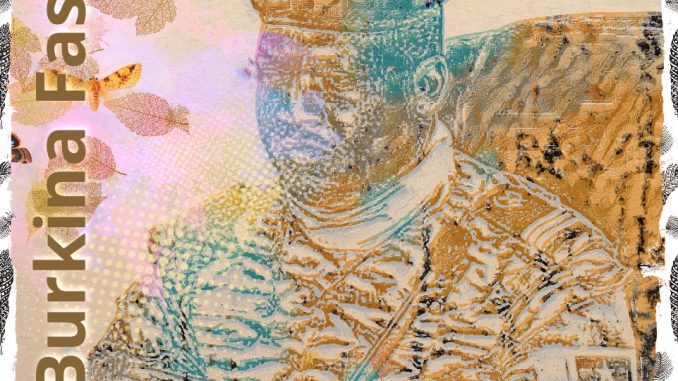
When President Ibrahim Traore of Burkina Faso recently declared his intention to decline further aid from France, his words resonated with the spirit of Mahatma Gandhi’s principle of self-reliance. However, there are ripples beneath the surface of this declaration, notably his emerging alignment with Russian President Putin.
For many nations seeking to break away from traditional ties, it’s not uncommon to seek out new alliances. Russia, with its strategic interest in Africa, might seem like an attractive partner for Burkina Faso. The motivation might be rooted in diversifying economic partnerships or perhaps gaining leverage in international politics.
However, as Gandhi would have advised, every partnership should be approached with the principles of truth and non-violence in mind. Aligning closely with Russia could come with its own set of challenges. Russia’s international engagements, particularly in recent years, have often been marked by geopolitical maneuverings that may not always align with the best interests of Burkina Faso.
Furthermore, there’s a danger in replacing one dominant partnership with another. The objective should not be to shift dependency but to cultivate genuine autonomy. President Traore would do well to consider the long-term implications of such a relationship. While French aid might have its strings, a partnership with Russia might come with chains.
For Americans, it’s essential to view this potential shift not as a mere change in allegiances, but as a complex tapestry of geopolitics, national pride, and the timeless quest for autonomy. As unsolicited advice to President Traore, I’d echo Gandhi’s sentiment: “Freedom is not worth having if it does not include the freedom to make mistakes.” However, in the dance of international politics, some mistakes can have lasting consequences. It is my hope that Burkina Faso charts its course with wisdom, foresight, and the true well-being of its people at heart.
Burkina Faso’s Struggle for Self Reliance
President Traore’s words reverberated with the echoes of a sentiment deeply understood by Mahatma Gandhi during India’s struggle for independence: the transformative power of self-reliance.
In an age where interconnectedness is the norm and economies are woven into a global fabric, it is a bold step for any nation to assert its desire to step back and rediscover its own strengths. Just as Gandhi championed the notion of “swaraj” or self-rule, emphasizing the importance of local industry and self-sustainability, President Traore’s statement speaks to a nation’s yearning to be free from external dependencies.
Burkina Faso is a landlocked country in western Africa that gained independence from France in 1960 after 64 years of French colonization.
France has recently suspended development aid and budgetary assistance to Burkina Faso, according to an announcement made by its foreign ministry on Sunday, August 7, 2023. Up until the suspension, the projects of the French Development Aid for Burkina Faso represent 482 million euros while the budget support programmed in 2022 amounts to 13 million euros, according to the Quai d’Orsay.
While it is true that aid can provide essential resources during times of crisis, an over-reliance can sometimes inadvertently perpetuate the cycle of dependency, hindering the blossoming of a nation’s true potential. Gandhi once said, “Man becomes great exactly in the degree in which he works for the welfare of his fellow-men.” This could be equally applied to nations. When a country leans heavily on foreign aid, it might inadvertently suppress its own innovative spirits and domestic industries.
It is crucial for Burkina Faso to ensure that this move is not just symbolic but is accompanied by concrete strategies. Building local industries, promoting education, and creating a conducive environment for innovation will be pivotal. As Gandhi believed, true progress is achieved when every citizen, from the farmer to the scholar, feels empowered and invested in the nation’s destiny.
In conclusion, President Traore’s statement serves as a reminder of the universal longing for autonomy and self-determination. As we reflect on his words, let’s also be reminded of Gandhi’s enduring wisdom that true freedom and development come not just from external assistance, but from the collective spirit of a people determined to shape their own destiny.

Leave a Reply